“It’s all about the content, not the container.”

Wow! What a week. I spent last week hosting a group of trail tourism advocates from Atlantic Canada, sharing best practices along four Mid-Atlantic trails: the Appalachian Trail, C&O Canal Towpath, Virginia Creeper Trail, and the Great Allegheny Passage.
The group members hailed from New Brunswick, Newfoundland, Nova Scotia, and Prince Edward Island – all visiting on a trip supported by the Atlantic Canada Opportunities Agency, a federal agency that recognizes the economic value of trails and tourism. What a powerful statement to send a group to learn from best practices in other places!
We had a fantastic mix of tourism providers (B&Bs, a hotelier, and shuttling services) and others working to build and promote long distance trails. We covered a lot of ground in four days. Among the highlights: two trail rides; Antietam National Battlefield; Shepherdstown, Harpers Ferry, and Berkeley Springs, WV; Cumberland and Frostburg, MD; and Ohiopyle and Fallingwater in PA.
Central to our conversations were the importance of “above and beyond” hospitality, the crossover between cultural heritage travel and outdoor recreation, and the shift to experiential tourism.
Above and Beyond Hospitality
In every experience, we paid close attention to the hospitality received. We experienced everything from exceptional to awful (in a single case). I learned a lot about hospitality myself. In one case, a restaurant, Old Angler’s Inn, had opened for Monday lunch just for our group. The events manager called me mid-morning just to check in (talk about feeling cared for!) and also wanted to know if we’d prefer to dine inside or out. I wasn’t sure, so he set up tables for 16 inside AND out, completely ready to go upon our arrival.
In another case, the Savage River Lodge actively helped formulate a Plan B after we were delayed in traffic, and a part of that plan was “Relax and have a glass of wine on the house.” The group met with nine service providers as well as a number of non-profit and government representatives. The common theme among the top-notch businesses was a “whatever it takes” approach to hospitality. (The best have learned how to offer this level of service without burning out, without nickel-and-diming, and also without undervaluing services.)
Experiential Tourism
To maximize the potential of trails, it’s no longer enough to say “Come use our fabulous trails.” We must take the additional step of curating an experience for both our visitors and area residents. One of the most insightful observations of the week was “It’s all about the content, not the container.” The trail isn’t enough these days. More important is how we frame the visit, particularly if we want trail visits that result in revenue generation.
Heather Yule with Nova Scotia Tourism defined experiential tourism as “learning something by doing something with someone who lives there.” Tapping a maple tree with a syrup producer. Hammering a piece of iron with a local blacksmith. Harvesting honey with a beekeeper. Does it get any better than this? If there’s such an experience to be had along or near a trail, we can work to package it as part of the visit. Ann Nemanic of Laurel Highlands Visitors Bureau spoke of “make and take” experiences (make a ceramic bowl with a local potter and take it home with you, for example). In any form of experiential travel, we are taking something home with us. It may or may not be a physical takeaway, but so long as we remember it, our travel experience lives on.
Early on in our trip, I asked each of the group members for one word that describes tourism. Three E’s emerged: experience, engagement, and exploration. Don’t we expect all three from our travels, along with authenticity and exceptional hospitality? (Some of the other one word responses, by the way, were connections, service, partnerships, revenues, and community.)
The Value of Connecting
An old saying that resonated with our Maritime friends was “A rising tide lifts all boats.” They heard very clearly that the best service providers believe this to their core. One speaker commented that you have to think beyond where you are. This is especially true in trail tourism, where our visitors are typically moving from spot to spot along a trail. Working with the B&B two towns over and knowing the hot spots 60 miles north become critical aptitudes. Connecting is key, as are authentic experiences and exceptional hospitality. I was the host of this best practices mission, but can easily say that I learned as much as I shared, if not more.
Thanks to the many speakers who helped make this trip a reality! (See below for the full list of speakers.)
Trip Photos
Speakers (in order of appearance)
Don Briggs, Potomac Heritage National Scenic Trail
Daniel Ward, Boat House at Fletcher’s Cove
Becky Curtis, C&O Canal Trust
Dr. Kristin Lamoureux, International Institute of Tourism Studies at George Washington University
Dan Spedden, Hagerstown-Washington County Convention and Visitors Bureau
Chris Haugh, Tourism Council of Frederick County
Auni Gelles, Heart of the Civil War Heritage Area
Lois Turco, Canal Towns Partnership
David Fox, Harpers Ferry National Historical Park
Reed Flinn, Appalachian Trail Conservancy
Julie Judkins, Appalachian Trail Conservancy
Brady Adcock, Appalachian Trail Conservancy
Michael Wright, Sundog Outfitters and Adventure Damascus
Laurel Drake, Teahorse Hostel
Mike Dreisbach and Jan Russell, Savage River Lodge
Bill Atkinson, Maryland Department of Planning
Shelley Miller, Get Out and Play Outfitters
Gail Hall, Inn on Decatur and Mountainside Bike Tours
Elizabeth Stahlman, City of Frostburg
Stacie Hall, Ohiopyle State Park
William Prince, Trail Town Program
Ann Nemanic, Laurel Highlands Visitors Bureau
Eric Martin, Wilderness Voyageurs, Falls City Pub and Trillium Lodge
Christine H. O’Toole, freelance travel writer
Donna Holdorf, National Road Heritage Corridor
Renee Seifert, Fallingwater

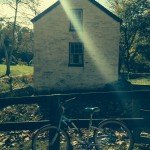
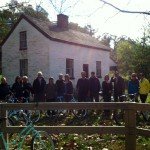

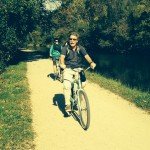

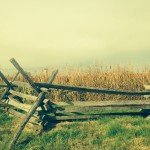
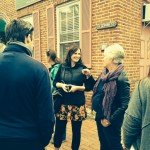

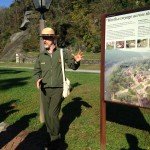
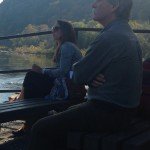
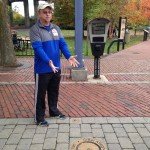
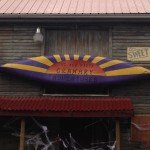
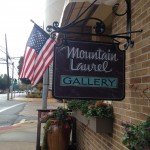
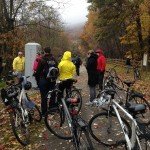
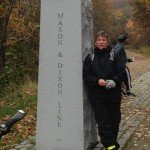

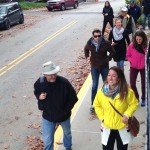

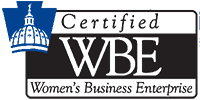
Although my profession is not in tourism; community as a whole must understand that every local business and resident within a community is ultimately in the tourism industry, from the drug store, bank tellers to service stations. My passion is trail development and Amy Camp certainly provided a first class “Above and Beyond” learning experience through this best practice mission. The itinerary was excellent and Amy was a logistic master in herding 13 or so Canadians from Washington to near Pittsburgh. Recruiting wonderful, engaging and thought provoking guest speakers at every stop along the way. I thank all Amy’s guest speakers for your time and input and Amy I can’t thank you enough. It was First Rate eh! Cheers, Bill (St. Margaret’s Bay Trail / Halifax to Lunenburg Destination Trail Steering Committee)
Thanks so much, Bill! I would have acknowledged this a long time ago, but somehow missed your comment until now.